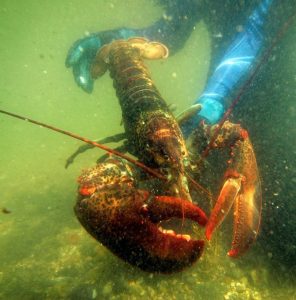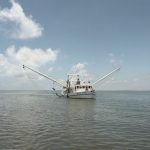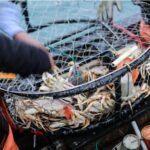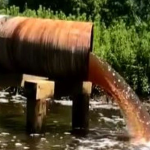State disputes study that predicts sharp decline in Gulf of Maine lobster population

The state agency that oversees Maine’s marine fisheries is questioning the reliability of a new study that predicts a sharp decline in Gulf of Maine lobsters over the next 30 years. The Gulf of Maine Research Institute, the University of Maine and the National Oceanic and Atmospheric Administration built a computer model that predicts the population will fall 40 to 62 percent by 2030. But Patrick Keliher, commissioner of the Department of Marine Resources, won’t be using the model to help him decide how to manage the state’s most valuable fishery,,, >click here to read< 01:06 














































“There are more things in heaven and earth, Horatio,
Than are dreamt of in your philosophy”
Hamlet to Horatio (1.5.167-8)
…or dreamt of in your Ph.D. thesis computer models! Artificial Intelligence can provide some wondrous information; and Artificial Intelligence can also provide some artificial science and artificial conclusions and artificial cautions and fears —when Human Intelligence and first hand empirical evidence is subordinated!
From the article, “The Gulf of Maine Research Institute, the University of Maine and the National Oceanic and Atmospheric Administration built a computer model that predicts the population will fall 40 to 62 percent by 2030.”
They are predicting what Lobster will be doing in 2030?
Hey, computer model builders, get you some high-techy sober-up, will you? Do you really think you have all the (unpredictable) factors that go into, or will go into, the lives of these animals and their environment? Besides, we might all be radio active potato chips by 2030 and Lobster won’t be so important! Maine Lobster have been abundant in recent years and will most likely cycle back to a less intense population. Fish swim and crawl, come and go, to find agreeable environments. Most likely it’s been happening for eons, certainly in the half century since I’ve been watching!!
Computer moder builders, if you are theorizing that it’s warming ocean waters as prime mover, that makes sense, but, then go after the oil companies, not the fishing! Then don’t spend research funds on hyperbolic headliney “studies” that feed your grant writing and the out-to-squelch-fishing “conservation” paranoidpropagandaparanoia machinery—with Boris Worm style apocalyptic decrees (only jellyfish by 2048 or only 38% of Lobster by 2030). C’mon, man!
And is this where we need to spend research effort and money when the fish stock assessments are so woefully inadequate? Human intelligence based accurate cooperative research (scientists on fishing vessels with data respected by NOAA’s scientific culture) is needed NOW to close the very significant gap between what “computer models predict” about the fish and what fishermen experience in real time, working on the ocean every day, year in and year out!